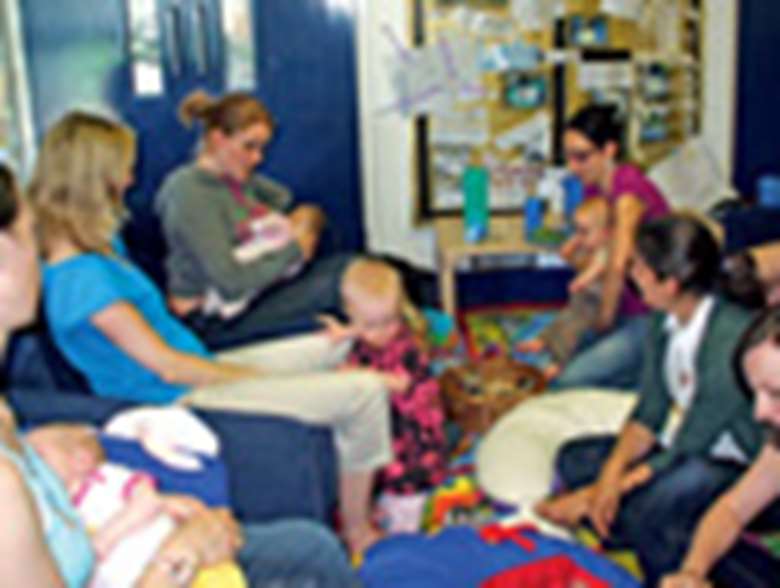In Practice: Case study - Mums turn breastfeeding trainers
Tuesday, June 30, 2009
Mums can find it difficult to breastfeed and some give up after just a few weeks. Jo Stephenson examines how a programme in Trafford trains ordinary mums to support their peers who also want to successfully breastfeed.

Objectives Breastfeeding helps give children the best start in life. National statistics show more than three-quarters of women start but many give up after a few weeks. In Trafford, ordinary mums are being trained as peer counsellors to support others to continue breastfeeding. "We're not in a breastfeeding culture and many mothers have never seen anyone like their mum or sister breastfeeding," explains Sure Start midwife Rose Corke. "So there's a need to get the message out about how important it is."
What was done Any mum who has successfully breastfed a baby can embark on the La Leche League Peer Counsellor Programme. The free 12-week training can be accessed through all children's centres in Trafford. Once mums have completed the course, they go on to support others at breastfeeding groups also based at children's centres. "The course helps to get alongside mums to encourage them to keep going," says Corke. One of the reasons the groups are so successful is people share real-life experiences and how they got through difficulties. Peer counsellors also attend antenatal clinics and classes as well as GP surgeries to help pregnant or new mothers. They've also been into big stores such as Boots, John Lewis and Mothercare. Trafford ran the first course in autumn 2006 and has trained 55 mums so far.
The issues "It is not about being the breast police," says Corke. "Or looking down on people who are not breastfeeding, as long as they have made an educated decision." Not everyone who does the course becomes a peer counsellor but can still continue to promote breastfeeding among friends and relatives. Corke has no shortage of volunteers. However, some people find it hard to juggle the training with other commitments. It is effective but success relies on the enthusiasm and commitment of mums who take part, she adds. It is also important to recognise its limits. "When people come out at the end they don't know everything about breastfeeding; they're not replacing midwives and health visitors," says Corke.
Outcomes The breastfeeding rate in Trafford is higher than many parts of the country where it can be as low as 14 per cent. About 72 per cent of mums start and about half are still breastfeeding at six to eight weeks. Many have said they would not have continued breastfeeding without the help they got at the support groups, says Corke. The drive to up rates in Trafford has been a real multi- agency effort involving Sure Start, Trafford Council, the local primary care trust and maternity services.
TOP TIPS
DO
- Be honest. This is about mum-to-mum support and does not make someone a breastfeeding expert
- Be flexible. Some mums may not be able to come every week so can do 10 out of 12 sessions and still qualify
- Encourage people to be themselves. It's about being kind and welcoming
DON'T
- Be judgmental - everyone comes to the training for different reasons
- Break confidentiality. People share things in group they may not have shared before.




